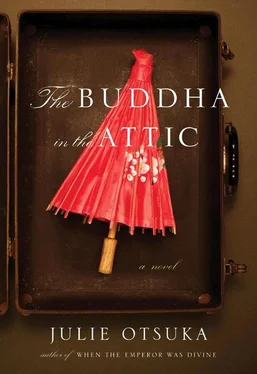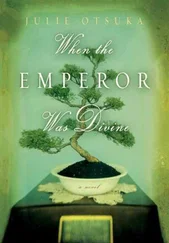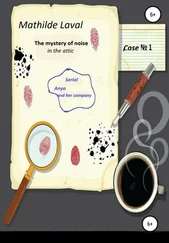THE HARDEST THING, Chizuko told us, was not knowing where he was. The first night after her husband’s arrest she had woken up in a panic, unable to remember why she was alone. She had reached out and felt the empty bed beside her and thought, I’m dreaming, this is a nightmare , but it wasn’t, it was real. But she had gotten out of bed anyway and wandered through the house calling out for her husband as she peered into closets and checked under beds. Just in case . And when she saw his suitcase still standing there beside the front door she took out the bar of chocolate and slowly began to eat. “He forgot,” she said. Yumiko had seen her husband twice in her dreams and he’d told her he was doing all right. It was the dog, she said, that she was most worried about. “She lies around for hours on top of his slippers and growls at me whenever I try to sit on his chair.” Fusako confessed that whenever she heard that someone else’s husband had been taken away she felt secretly relieved. “You know, ‘Better her than me.’ ” And then, of course, she felt so ashamed. Kanuko admitted that she did not miss her husband at all. “He worked me like a man and kept me pregnant for years.” Kyoko said that as far as she knew her husband’s name was not on the list. “He’s a nurseryman. He loves flowers. There is nothing subversive about him.” Nobuko said, “Yes, but you never know.” The rest of us held our breath and waited to see what would happen next.
WE FELT CLOSER to our husbands, now, than we ever had before. We gave them the best cuts of meat at supper. We pretended not to notice when they made crumbs. We wiped away their muddy footprints from the floor without comment. At night we did not turn away from them in bed. And if they yelled at us for failing to prepare the bath the way they liked it, or grew impatient and said unkind things— Twenty years in America and all you can say is “Harro”? —we held our tongues and tried not to get angry, because what if we woke up the next morning and they were not there? How would we feed the children? How would we pay the rent? Satoko had to sell off all her furniture . Who would put out the smudge pots in the middle of the night to protect the fruit trees from an unexpected spring frost? Who would fix the broken tractor hitch? Who would mix the fertilizer? Who would sharpen the plow? Who would calm us down when someone had been rude to us in the market, or called us a less-than-flattering name on the street? Who would grab our arms and shake us when we stomped our feet and told them we’d had it, we were leaving them, we were taking the next boat back home? The only reason you married me was to get extra help on the farm .
MORE AND MORE now we began to suspect that there were informers among us. Teruko’s husband, people whispered, had turned in a labor foreman at the apple-drying plant with whom she had once had an affair. Fumino’s husband had been accused of being pro-Axis by a former business partner who was now desperate for cash. (Informers, we had heard, were paid twenty-five dollars a head.) Kuniko’s husband had been denounced as a member of the Black Dragon Society by none other than Kuniko herself. He was about to leave her for his mistress . And Ruriko’s husband? Korean, his neighbors said. Working undercover. Bankrolled by the government to keep an eye on members of the local Buddhist church. I saw him taking down license plate numbers in the parking lot . Several days later he was found badly beaten in a ditch by the side of the road and the next morning he and his family were nowhere to be found. The front door to their house was wide open, their cats had been recently fed, a pot of hot water was still boiling on the stove. And that was that, they were gone. Word of their whereabouts, however, began to reach us within days. They’re down south by the border. They’ve fled to the next state. They’re living in a nice house in the city with a brand-new car and no visible means of support .
SPRING ARRIVED. The almond trees in the orchards began dropping the last of their petals and the cherry trees were just reaching full bloom. Sun poured down through the branches of the orange trees. Sparrows rustled in the grass. A few more of our men disappeared every day. We tried to keep ourselves busy and be grateful for little things. A friendly nod from a neighbor. A hot bowl of rice. A bill paid on time. A child safely put to bed. We woke up early every morning and pulled on our field clothes and we plowed and we planted and we hoed. We dug up weeds in our vineyards. We irrigated our squash and peas. Once a week, on Fridays, we put up our hair and went into town to go shopping, but did not stop to say hello to one another when we met on the street. They’ll think we’re exchanging secrets . We rarely visited each other after dark in J-town because of the curfew. We did not linger long after services at church. Now whenever I speak to someone, I have to ask myself, “Is this someone who will betray me?” Around our younger children, too, we were careful about what we said. Chieko’s husband was turned in as a spy by his eight-year-old son . Some of us even began to wonder about our own husbands: Does he have a secret identity of which I am not aware?
SOON WE WERE hearing stories of entire communities being taken away. More than ninety percent of our men had been removed from a small town of lettuce growers in a valley to our north. More than one hundred of our men had been removed from the defense zone around the airfield. And down south, in a small fishing town of black shanties on the coast, all people of our descent had been rounded up in a day and a night on a blanket warrant without warning. Their logbooks had been confiscated, their sardine boats placed under guard, their fishing nets cut to shreds and tossed back out into the sea. Because the fishermen, it was said, were not really fishermen, but secret officers of the enemy’s imperial navy. They found their uniforms wrapped up in oil paper at the bottom of their bait boxes .
SOME OF US went out and began buying sleeping bags and suitcases for our children, just in case we were next. Others of us went about our work as usual and tried to remain calm. A little more starch on this collar and it’ll be fine, now, don’t you think? Whatever would happen would happen, we told ourselves, it was no use tempting the gods. One of us stopped talking. Another of us went out early one morning to water the horses and hung herself in the barn. Fubuki was so anxious that when the evacuation orders were finally posted she let out a sigh of relief, for at last, the waiting had come to an end. Teiko stared at the notice in disbelief and quietly shook her head. “But what about our strawberries?” she asked. “They’ll be ready to pick in three weeks.” Machiko said she wasn’t going, it was as simple as that. “We just renewed our lease for the restaurant.” Umeko said we had no choice but to do as we were told. “It’s the President’s order,” she said. And who were we to question the President? “What will the soil be like there?” Takiko’s husband wanted to know. How many days of sun would we get? And how many days of rain? Kiko just folded her hands and looked down at her feet. “It’s all over,” she said softly. At least, Haruyo said, we would all be leaving together. Hisako said, “Yes, but what have we done?” Isino covered her face and wept. “I should have divorced my husband years ago and taken the children back home to my mother in Japan.”
FIRST they told us we were being sent to the mountains, so be sure to dress warmly, it would be very very cold. So we went out and bought long woolen underwear and our first warm winter coats. Then we heard we were being sent to the desert, where there were poisonous black snakes and mosquitoes the size of small birds. There were no doctors there, people said, and the place was crawling with thieves. So we went out and bought padlocks and bottles of vitamins for our children, boxes of bandages, sticks of moxa, medicinal plasters, castor oil, iodine, aspirin, gauze. We heard that we could only bring with us one bag apiece so we sewed little cloth knapsacks for our youngest children, with their names embroidered on each. Inside we put pencils and ledgers, toothbrushes, sweaters, brown paper bags filled with rice we had left out to dry on tin trays in the sun. In case we get separated . “This is only for a while,” we said to them. We told them not to worry. We talked about all the things we would do when we came home. We would eat dinner every night in front of the radio. We would take them to the picture show downtown. We would go to the traveling circus to see the Siamese twins and the lady with the world’s smallest head. No bigger than a plum!
Читать дальше












